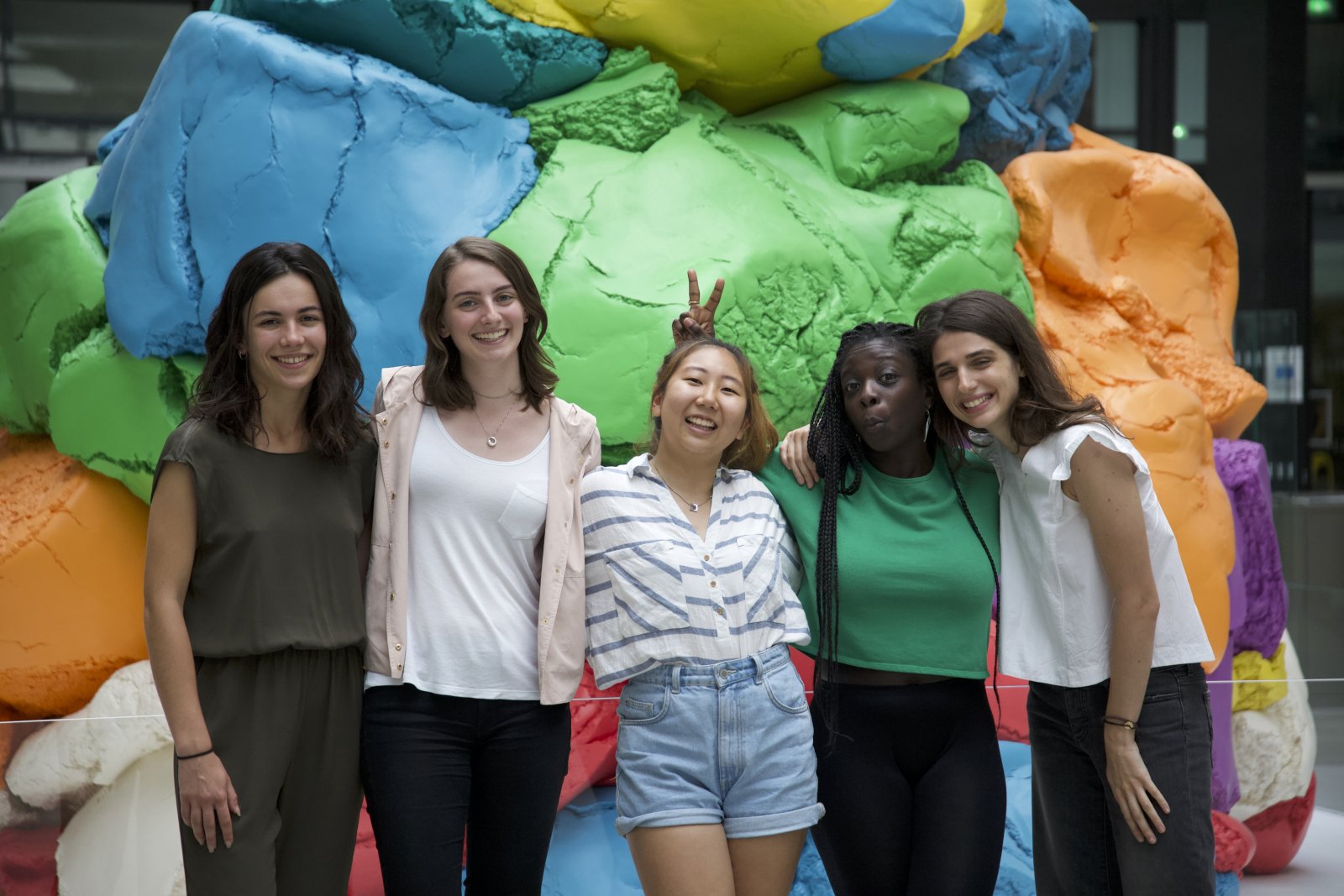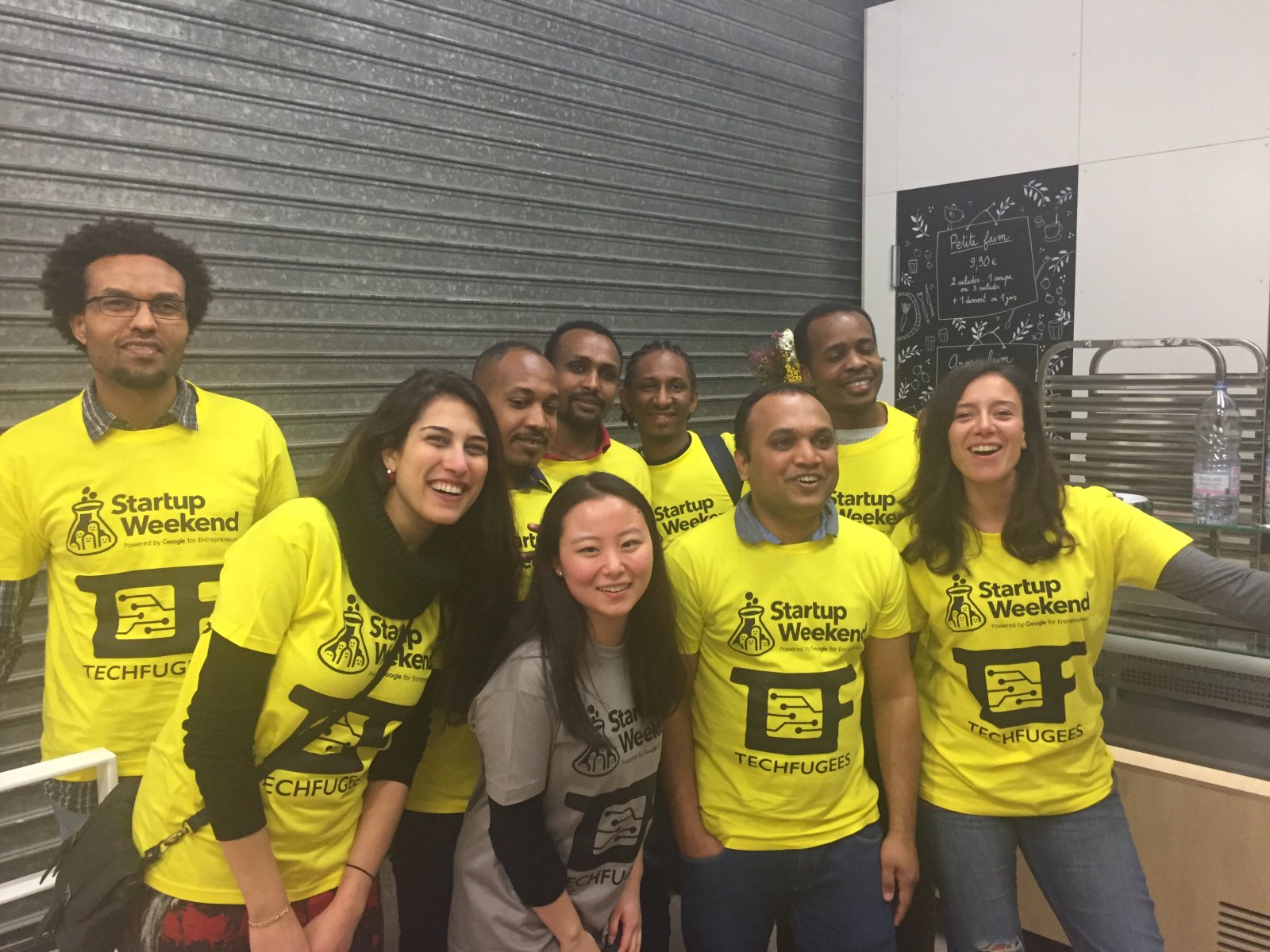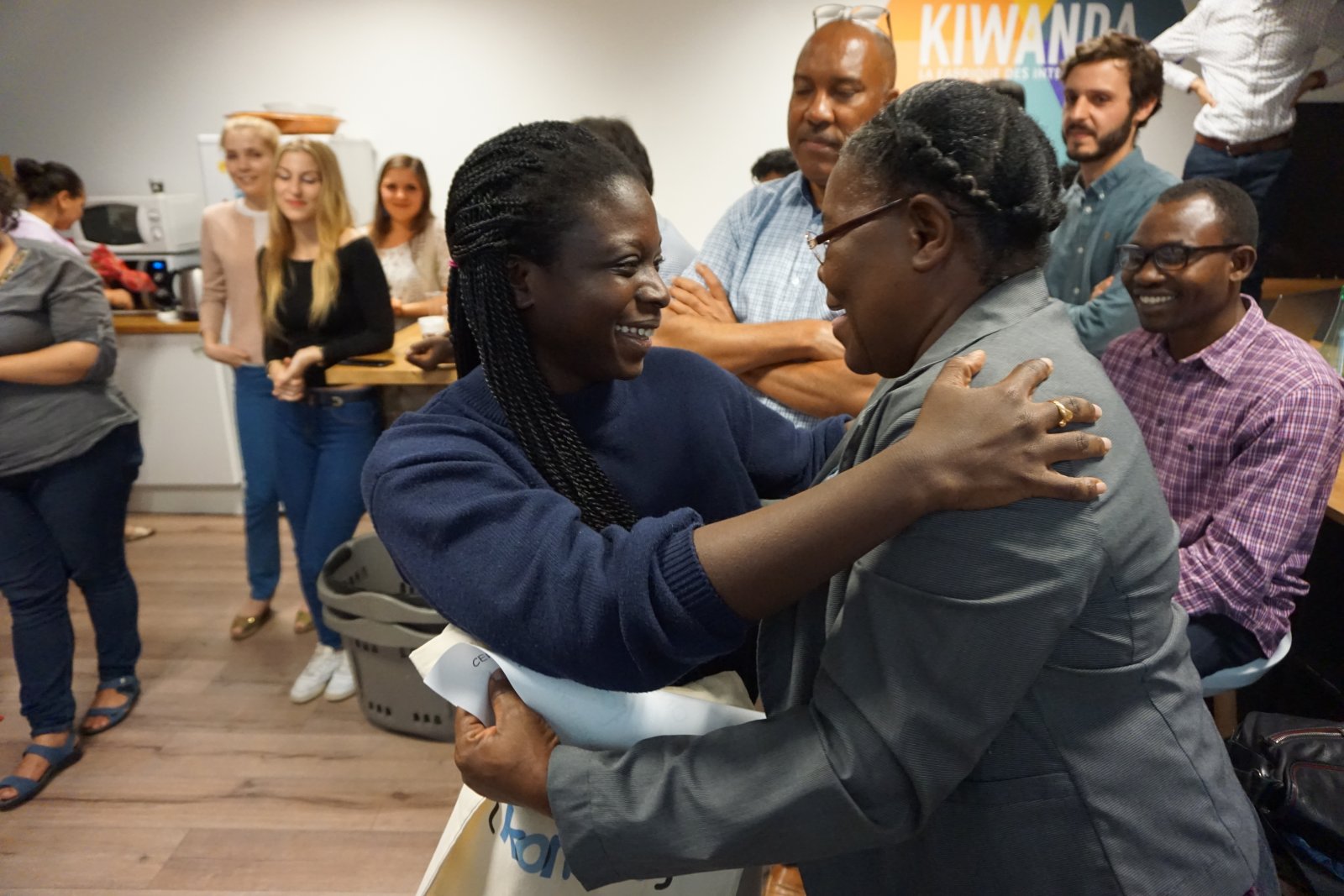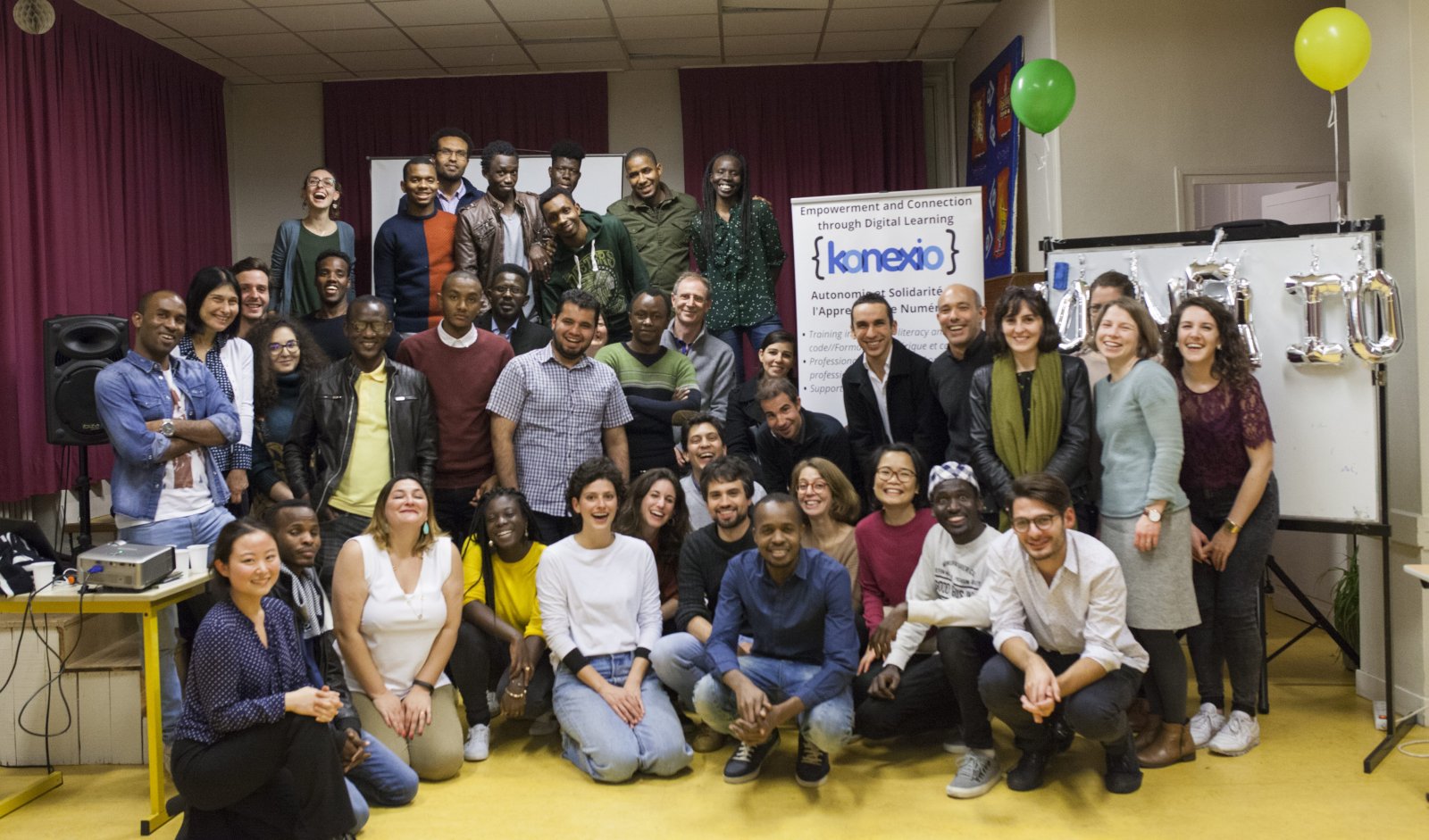Our Past, Present and Future are Female
Apr 28, 2022
First story




In 2016, Jean Guo and I co-founded Konexio, a Paris-based NGO and social enterprise dedicated to promoting the socio-economic inclusion of disadvantaged populations, notably refugees and migrants. We met as two bright-eyed, ambitious students studying in France as Fulbright scholars. Jean had come to study migrant health services, while I had come to continue my work as a teacher in a low-income school district. The paths that lead us to France could not have been more different; Jean grew-up in California and studied biology and economics at university, while I had grown-up on the East Coast and opted for studies in intercultural communication, education, and international relations. She loves warm weather, the beach, and sings and acts as a hobby, while I’d take a snowstorm and grey, overcast skies over the California sun any day. On paper it may seem that we could not be more different from each other, but there was one undeniable bond we shared, a story and experience we connected to, which also happened to be the biggest motivating factor in pushing us to venture down the path of entrepreneurship: the story and the influence of the most inspiring women we know, our mothers.
We are both the proud daughters of immigrants. Moving from China in 1996, Jean and her mother settled in Los Angeles, CA where they were met with the immediate challenge of adapting to life in a new land. Without access to a built-in network of support, social and cultural codes, marketable job skills and a strong language base, her single mother was forced to take-on several odd jobs at a time to provide her daughter with as stable a life as she could. Meanwhile, in the suburbs of Washington, DC, my mother, having grown up in Senegal, met my father, who had immigrated to the United States from the Gambia. My mother had ambitions of going to university and studying modern languages to become a translator in the United States, but the reality of having to raise and help support three children and fulfill the role of a dutiful traditional wife dashed those dreams. From clothing store assistant to nanny, she found what jobs she could to provide for her family. On different coasts, in different states, Jean and I were witness to the indomitable strength, determination, and sacrifice of our mothers. Both our mothers lived through difficult childhoods where they were subject to rigid gender roles and societal expectations, and where opportunities for education and employment were scarce. They both made the courageous decision to leave their families, their homes, their languages and their cultures behind to move to the United States in the hopes of giving their children everything they themselves never had. And when they arrived, they were immediately confronted with the challenges of having to start a new life in a country where everything seemed foreign and unfamiliar, and where the nearest source of support was several oceans and national borders away.
The stories and sacrifices of our mothers are exactly why we started Konexio. Since 2015, the global migration crisis spurred on by war, famine, disease, and economic disparity has seen over 11 million refugees arrive in Europe, with 200,000 settling in France. Upon arrival, these refugees encounter the very same issues we witnessed our mothers confront ; lack of access to networks of support, lack of access to stable, sustainable employment, lack of access to educational opportunities, and the overwhelming difficulty of trying to build a new life and integrate into a society and adopt a language that is not your own. Of the 200,000 in France, the unemployment rate is a staggering 50% and it takes 20 years on average for these refugees to reach the same employment levels as nationals.
But with each set of challenges comes opportunity and hope. Socio-economic inclusion is one of the biggest challenges in Europe’s debate concerning migrant integration. We now live in a world where the digital revolution leads to the increased digitization of our societies. 90% of jobs across Europe require candidates to possess sound digital skills, and everything from how to when, and where we communicate and interact with each other is governed by technology.
Konexio's response to this challenge is to serve as a catalyst for inclusion through tech training. We connect refugees with professional and social opportunities in their local communities by providing multi-level digital/computer literacy and soft skills training to our students. Our training material is focused on community-building and social cohesion between hosts and refugees by mixing in-person teaching with additional support provided on our e-learning platform, where students put into practice their tech skills through a series of exercises, quizzes, and guided support. The soft skills workshops provide our students with opportunities to work on their professional and personal development in a French context; from networking, building self-confidence, presentation and interview skills, and teamwork, Konexio students are given the opportunity to interact with people from all walks of life who are dedicated to making them feel included and welcome in their new host country. In bringing together refugees and local citizens, men and women, young and old from all backgrounds and walks of life, we have created an inclusive and supportive community for our students to thrive.
So far, Konexio has hosted more than 120 students through 16 course promotions, engaged over 50 volunteers in over 2000 hours of service, and built a partnership network of over 30 local and international structures across the associative, public and private sectors dedicated to our mission. Of the students who have completed our programs, close to 70% have gone on to achieve target outcomes within 6 months (job placement, education, or entrepreneurship), 94% continue to use daily skills that they have gained, and 94% are more socially integrated. Currently incubated at Station F, the world’s biggest startup campus, we work with a diverse team from different backgrounds and from all around the world who embody the female entrepreneurial spirit.
There are so many stories we have been touched by in our journey with Konexio, and those that are the most remarkable are the success stories of our female students. There’s the story of Maya, a refugee from Syria, who came to France with an advanced degree in architecture speaking 4 languages, but could not find any work opportunities. After taking our courses, she changed her career path and obtained a Masters degree from La Sorbonne and is now working as a developer. Aisha*, a refugee from Sudan, was a brilliant doctor in her home country, but could not practice medicine in her new host country. She decided to launch her own project, developing educational and training materials to inform vulnerable populations, particularly the homeless and refugees in makeshift camps around Paris, about HIV and tuberculosis infection prevention. After recognizing she needed the use of digital skills, such as targeted research on the Internet and efficient use of Word and Excel for the management of her project, she enrolled in our courses, and is now continuing to build her project and looking to join an entrepreneurial incubator. And there’s Agathe*, a refugee from Angola in her 50s, who had never taken computer classes in her life. The only female student in her promotion, she was frustrated at first that exercises such as using a French keyboard and creating an email account didn’t come easily to her, but the encouragement and support of her fellow students and class volunteers saw her through two full courses at Konexio.
*names have been changed
In this whirlwind of a journey, from China, to the Gambia and Senegal, to the opposite coasts of the United States and finally to the metropolis of Paris, we have been and continue to be empowered, supported, and inspired by the women who supported us, believed in us, and sacrificed for us to be able to pay it forward and dedicate our lives to making inclusion and integration accessible for all, our mamas. And in Konexio’s work, we are continuously in awe of the strength and tenacity of the women who come through our program and are able to rebuild their lives after living through horrors many of us cannot even begin to comprehend. There’s so much work left to be done, but if our mamas and our fearless students have taught us anything, it’s that our past, our present, and our collective future are most definitely female!




